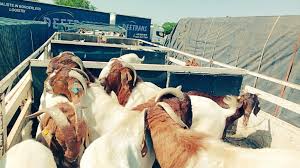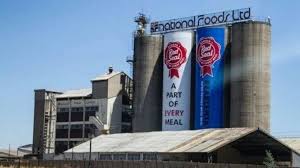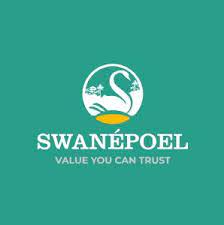Manufacturing start-up invests US$220k in Bulawayo, Harare
INTEGRATED manufacturing start-up, Swanepoel Industries (Pvt) Ltd has invested in two cooking oil and soya meal plants with a combined value of US$220 000 for Harare and Bulawayo factories as the firm seeks to expand operations next year.
The Harare-based consumer staple-manufacturing concern, which presently operates a maize milling plant, is a subsidiary of Swanepoel Group, an investment firm that is across a wide spectrum of industries.
Speaking by telephone from South Africa, Swanepoel Group president and chief executive, Mr Jason Swanepoel, said both factories for the planned projects would be up and running next year.
“Swanepoel Industries in this case, particularly through the Swanepoel Group is a consumer staple-manufacturing business for the mass market,” he said.
“So, we manufacture food products for the mass market such as roller meal, cooking oil and soya meal.
“The first plant is going to be in Harare and a second plant in Bulawayo and the first consignment we have just procures will be set up in Harare.”
Mr Swanepoel said each of the two proposed investments was to the tune of US$110 000 and the Harare plant would be commissioned moving into the second quarter of 2022. “We are planning to start our set up for the Harare plant early next year. The capital project for the plant in Bulawayo should be set up in the next eight months after
operations have commenced in Harare,” he said.
Within the maize milling plant, Mr Swanepoel said his organisation currently employs 16 people and after the commissioning of the Harare cooking oil and soya meal plant, employment figures would scale-up to at least 43.
He said this was because of the backward integration approach that they have embarked on – producing the soyabean from their Banket Farm in Mashonaland West province.
“That means most of our workforce is going to be on the farms running the day-to-day operations as well as the factory, which has a two-part production cycle, the first being the cooking oil and soya meal and the second being the soya chunks-manufacturing plant,” said Mr Swanepoel.
On the existing maize meal milling plant, the company is producing around 60 tonnes of mealie meal a day.
“So, part of our diversification was to ensure this cooking oil and soya meal chunk processing line produces about 20 tonnes of soya chunks a day and 3000 litres of cooking oil a day,” said Mr Swanepoel.
He said their diversification initiative was in line with the aspirations of the Second Republic’s five-year National Development Strategy 1 (NDS1), which would anchor the economy from 2021 to 2025.
“This is in line with the vision of His Excellency the President (Mnangagwa) of industrialising the economy. Our contribution as a start-up is to ensure that we invest more in the country and we head towards a self-sufficient and self-reliant Zimbabwe in terms of consumer staple products,” said Mr Swanepoel.
Going forward, the organisation plans to spread its operations across different parts of the country such as Mutare with the thrust of supporting NDS 1 while also enriching the nation by delivering nutritious products at minimal prices.
“We need to help the nation drive sustainable and inclusive growth through industrialisation, economic diversification and import substitution, creating jobs and drivingeconomic prosperity,” he said.
As agriculture is the backbone for a consumer staple-manufacturing business, Mr Swanepoel said his organisation was also looking forward to engaging farmers for outgrower schemes with a view to improving soyabean supply.
Soyabean is a key raw material in the production of cooking oil and soya meal to the manufacturing concern.
“Zimbabwe’s current bumper harvest has only yielded 70 000 tonnes of soyabean and the country requires around 300 000 tonnes of soyabean annually. This means there is more to be done to ensure that soyabean is grown sufficiently locally than it is currently,” Mr Swanepoel.
“Our mission is to bridge in between that gap and have our products on the market and have our farming mechanisms in place where we partner with farmers giving them inputs to grow the crop and sell to us.” – Chronicle.co.zw










